Poori – HELA Lyrics
[متن آهنگ «حلا» از پوری]
[همخوان]
وسطم کسی نی بغلم
حلا حلا حلا
از پیشونی میچکه عرقم
حلا حلا حلا
تو تبم میسوزه بدنم
حلا حلا حلا
مجلسو گذاشتم رو سرم
حلا حلا
[قسمت ۱]
چه غمیگن باشه چه شاد
دلم لک زده واسه چشات
تو که گفتی میمونم به پات
چرا دادی همه چیو به باد
تلخ مثل شبی که توشیمی
زمینهی گوشیمی
راستی چه بهت میاد
لباس عروس که پوشیدی
میام به خاطرت
فقط ندا بده
میدونی یادته
یادشی، شبا تو خوابته
اونقدر خرابه که
امشبو بگا بده
ببین رسیدش عاقد
ببین بیا و وا بده
وسطم کسی نی بغلم
حلا حلا حلا
از پیشونی میچکه عرقم
حلا حلا حلا
تو تبم میسوزه بدنم
حلا حلا حلا
مجلسو گذاشتم رو سرم
حلا حلا
وسطم کسی نی بغلم
حلا حلا حلا
از پیشونی میچکه عرقم
حلا حلا حلا
تو تبم میسوزه بدنم
حلا حلا حلا
مجلسو گذاشتم رو سرم
حلا حلا[قسمت ۲]
بابات موند روی حرفش
داد بری کلکتو کندش
میخواست یه دوماد مهندس
نه مثل من اَ دم قسط
شده بهار برا من خزون
میرقصم تا خود اذون
یجور میذارم سنگ تموم
انگار برا منه نه دیگرون
وسطم کسی نی بغلم
حلا حلا حلا
از پیشونی میچکه عرقم
حلا حلا حلا
تو تبم میسوزه بدنم
حلا حلا حلا
مجلسو گذاشتم رو سرم
حلا حلا
وسطم کسی نی بغلم
حلا حلا حلا
از پیشونی میچکه عرقم
حلا حلا حلا
تو تبم میسوزه بدنم
حلا حلا حلا
مجلسو گذاشتم رو سرم
حلا حلا
Poori – HELA (حلا)
Song Details
- Title: HELA (حلا)
- Artist: Poori
- Genre: Iranian Pop, Persian Trap
- Release Year: 2023 (estimated)
- Language: Persian (Farsi)
- Themes: Heartbreak, Love, Regret, Social Pressure, Emotional Pain
- Mood: Introspective, Emotional, Passionate, Pained
In-Depth Lyric Analysis
Chorus (Repetition of “Hala”)
- “وسطم کسی نی بغلم”
“I’m alone, no one’s hugging me”
The repeated line speaks to a feeling of isolation. The narrator feels emotionally alone, despite being surrounded by others. This could symbolize a deeper emotional disconnect, where physical presence does not equate to emotional intimacy. - “حلا حلا حلا”
This phrase, repeated multiple times throughout the song, is a cry for release or perhaps a desperate call for comfort in the midst of emotional turmoil. The repetition of “Hala” gives a pleading, mournful tone to the song, emphasizing the narrator’s emotional distress. - “از پیشونی میچکه عرقم”
“Sweat drips from my forehead”
The physical reaction of sweating under emotional stress is a symbol of intensity. It reflects the narrator’s anxiety or overwhelming emotions that can’t be easily controlled. - “تو تبم میسوزه بدنم”
“My body burns with fever”
This line amplifies the sense of internal agony. The physical manifestation of fever suggests that the narrator is suffering from emotional turmoil so intense that it affects them physically. - “مجلسو گذاشتم رو سرم”
“I put the gathering on my head”
This could be a metaphor for the narrator’s willingness to bear the weight of social expectations or emotional pain. The phrase may symbolize the pressure of societal or family obligations, especially regarding weddings or relationships.
Verse 1: Heartbreak and Regret
- “چه غمیگن باشه چه شاد، دلم لک زده واسه چشات”
“Whether it’s sadness or joy, my heart craves for your eyes”
The narrator expresses a deep yearning and emotional need for the person they love, regardless of the emotional circumstances. The longing is emphasized by the focus on the other person’s eyes, often considered a window to the soul, symbolizing intimate connection. - “تو که گفتی میمونم به پات، چرا دادی همه چیو به باد”
“You said you’d stay with me, why did you throw everything away?”
This line introduces betrayal or disappointment. The narrator feels that their partner has gone back on their promise, leading to heartbreak. “To give everything to the wind” means to lose everything or abandon it carelessly. - “تلخ مثل شبی که توشیمی”
“Bitter like the night you left”
The comparison to a bitter night suggests that the memory of the departure is still fresh and painful. The imagery of night enhances the sense of darkness and emotional heaviness. - “زمینهی گوشیمی”
“The background of my ears”
This could refer to lingering memories or sounds associated with the person, possibly emphasizing nostalgia or the persistence of the other person in the narrator’s mind, despite the separation. - “راستی چه بهت میاد، لباس عروس که پوشیدی”
“By the way, you look great in the wedding dress you wore”
This line adds a layer of regret. The narrator is haunted by the memory of their partner in a wedding dress, possibly symbolizing lost opportunities or a relationship that could have been. There’s an implicit sense of longing for a future that was never realized.
Verse 2: Family Pressure and Self-Reflection
- “بابات موند روی حرفش، داد بری کلکتو کندش”
“Your father stuck to his word, he made sure to tear your collection”
This line introduces family dynamics, possibly alluding to societal expectations or parental pressure in relationships. The metaphor of tearing the collection could symbolize the destruction of the narrator’s or the partner’s aspirations or dreams due to familial influence. - “میخواست یه دوماد مهندس، نه مثل من اَ دم قسط”
“He wanted an engineer groom, not someone like me, a person with debts”
This line reflects social expectations. The narrator contrasts their own life and ambitions with those of a more traditional, successful image of a partner. The reference to debts adds an element of self-doubt and feeling inadequate compared to the expectations placed on them. - “شده بهار برا من خزون”
“Spring has turned into autumn for me”
The change from spring to autumn symbolizes a loss of hope and joy. Spring, often associated with new beginnings, is replaced by autumn, which suggests decay or the end of a cycle. - “میرقصم تا خود اذون”
“I dance until the call to prayer”
The narrator attempts to distract themselves from their inner turmoil by dancing. However, the mention of the call to prayer suggests that their emotional conflict is deeply intertwined with their cultural and spiritual beliefs, and no amount of external distraction can ease their pain. - “یجور میذارم سنگ تموم، انگار برا منه نه دیگرون”
“I go all out, as if it’s for me, not for anyone else”
This line reflects the narrator’s self-destructive tendencies. They pour everything into a situation, but the final result is personal regret—doing things for their own satisfaction, which ends up causing more pain than fulfillment.
Chorus Reprise: A Continued Plea and Emotional Strain
The chorus repeats throughout the song, reinforcing the emotional core of the song. The repetitive nature of the lines amplifies the sense of hopelessness, longing, and isolation. It serves as a reminder of the narrator’s persistent yearning and emotional exhaustion, which no external distractions can alleviate.
Song Meaning
HELA by Poori is a deeply emotional track that delves into heartbreak, regret, and the conflict between personal desires and societal expectations. The song focuses on a failed relationship, where promises were broken, and the narrator is left dealing with feelings of abandonment and loneliness. The repetition of “Hala” throughout the song symbolizes the emotional intensity of the situation, while the imagery of sweat, fever, and burning represents the physical toll that emotional pain can have. The narrator grapples with the loss of a potential future, family pressure, and the constant search for emotional release.
Frequently Asked Questions (FAQs)
- What does “Hala” mean in the song? “Hala” can be interpreted as a cry or plea for release or comfort. The repetition of the word emphasizes the narrator’s desperation and emotional turmoil.
- What is the significance of the wedding dress in the song? The wedding dress symbolizes lost opportunities and unfulfilled promises. It represents a future that was never realized, and the narrator is haunted by the idea of what could have been.
- Why does the narrator mention family pressure? The mention of family pressure reflects the narrator’s struggle with societal expectations, particularly around marriage and success. This theme speaks to the conflict between personal desires and family obligations.
- What does the reference to “dancing until the call to prayer” mean? This line juxtaposes the narrator’s attempt to distract themselves from emotional pain with the spiritual and cultural significance of the call to prayer. It highlights the internal conflict between worldly distractions and spiritual grounding.
- What is the overall emotional tone of the song? The song carries a tone of sorrow, longing, and frustration. The narrator is trapped in a cycle of heartbreak, regret, and emotional exhaustion, with little hope for resolution.
HELA is a poignant exploration of the complexities of love, societal pressure, and emotional conflict, with the narrator trapped between personal desire and external expectations. The song captures the deep emotional pain that comes with lost love and the heavy weight of unfulfilled promises.

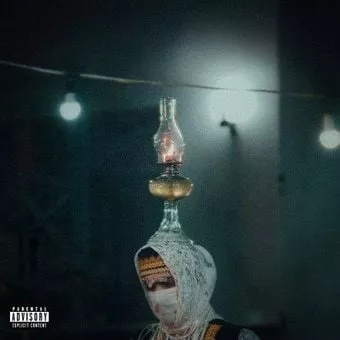





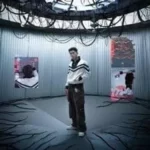
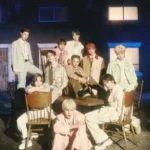
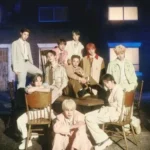
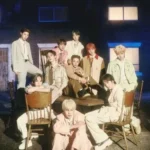
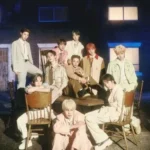
Leave a Reply